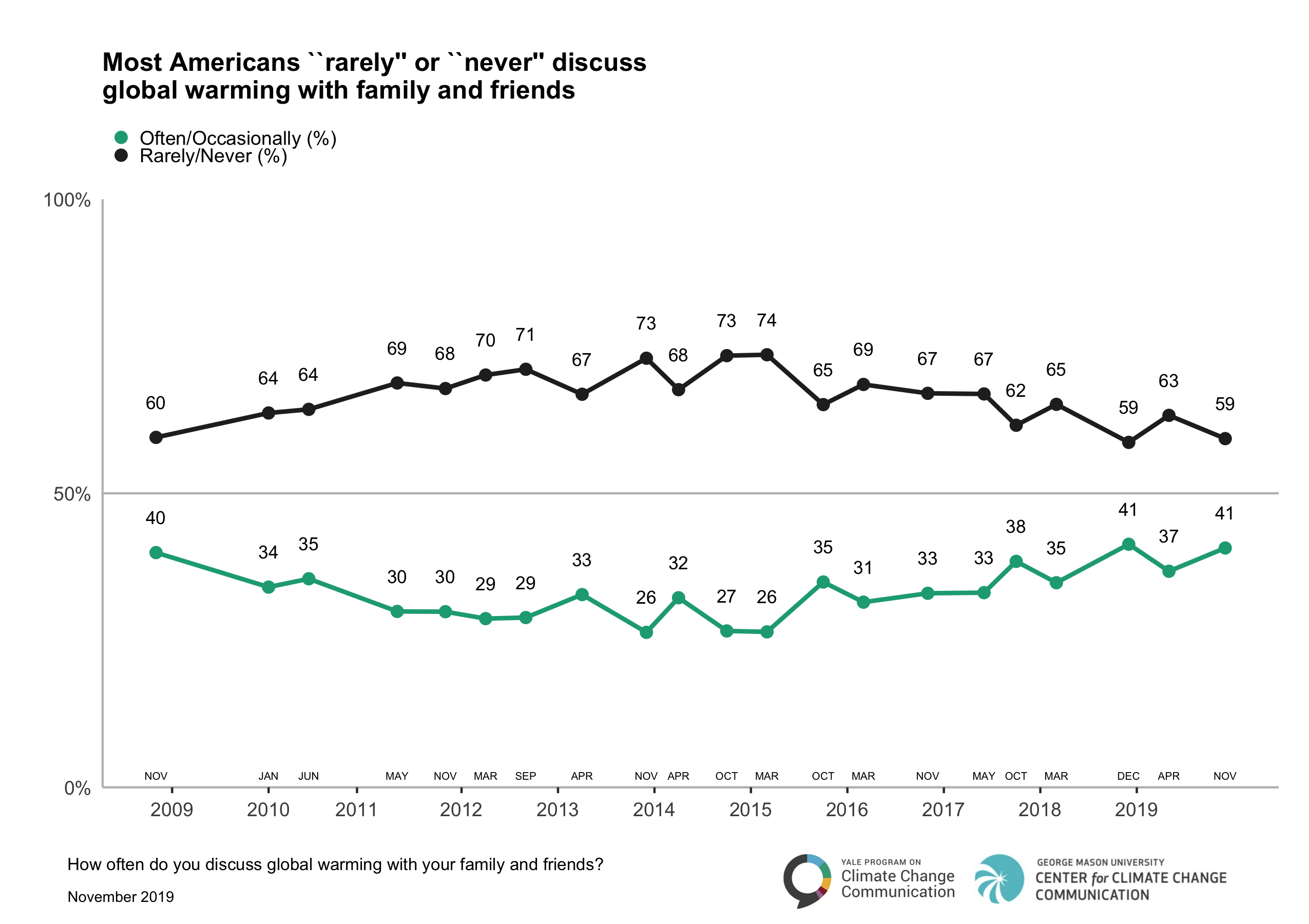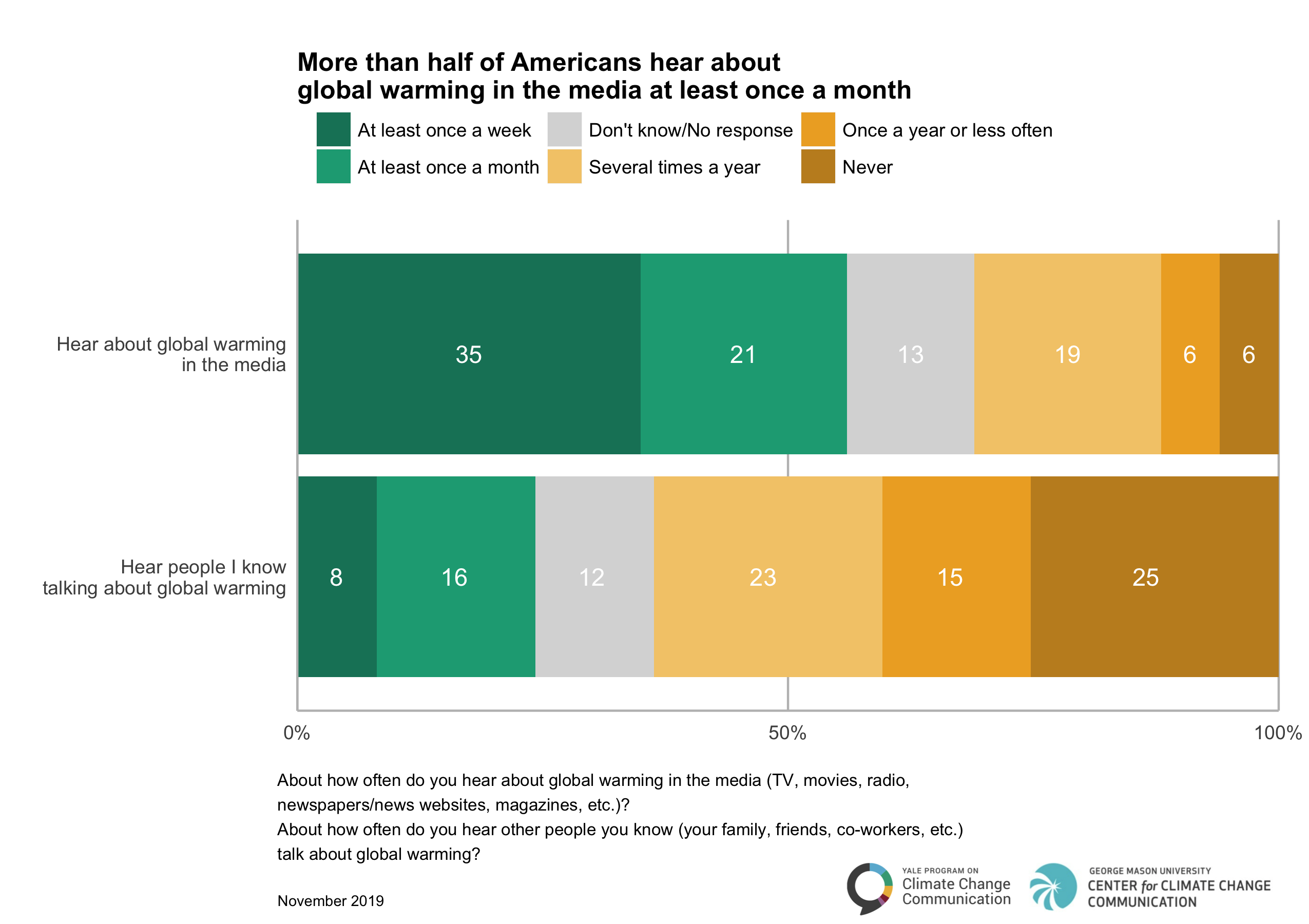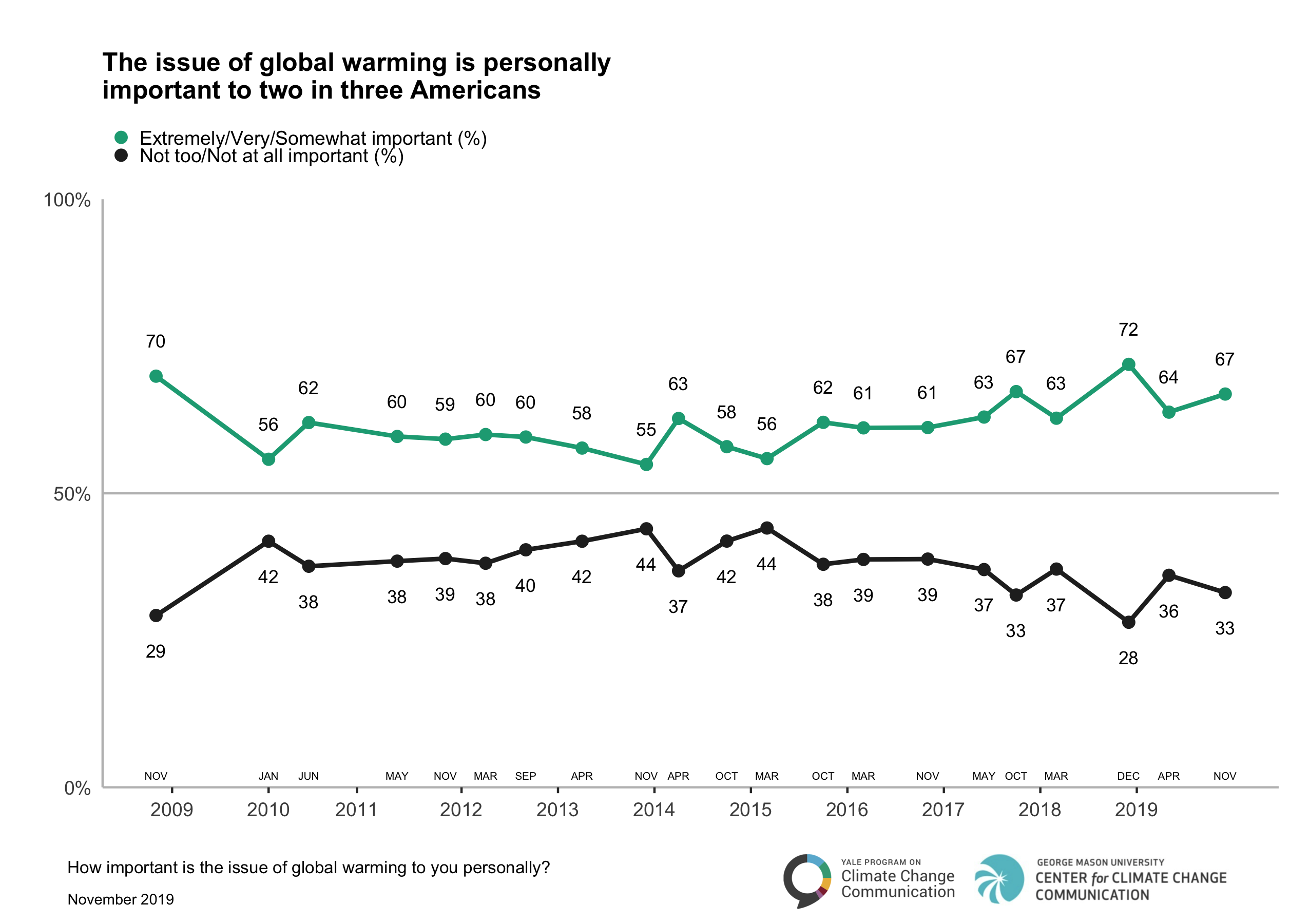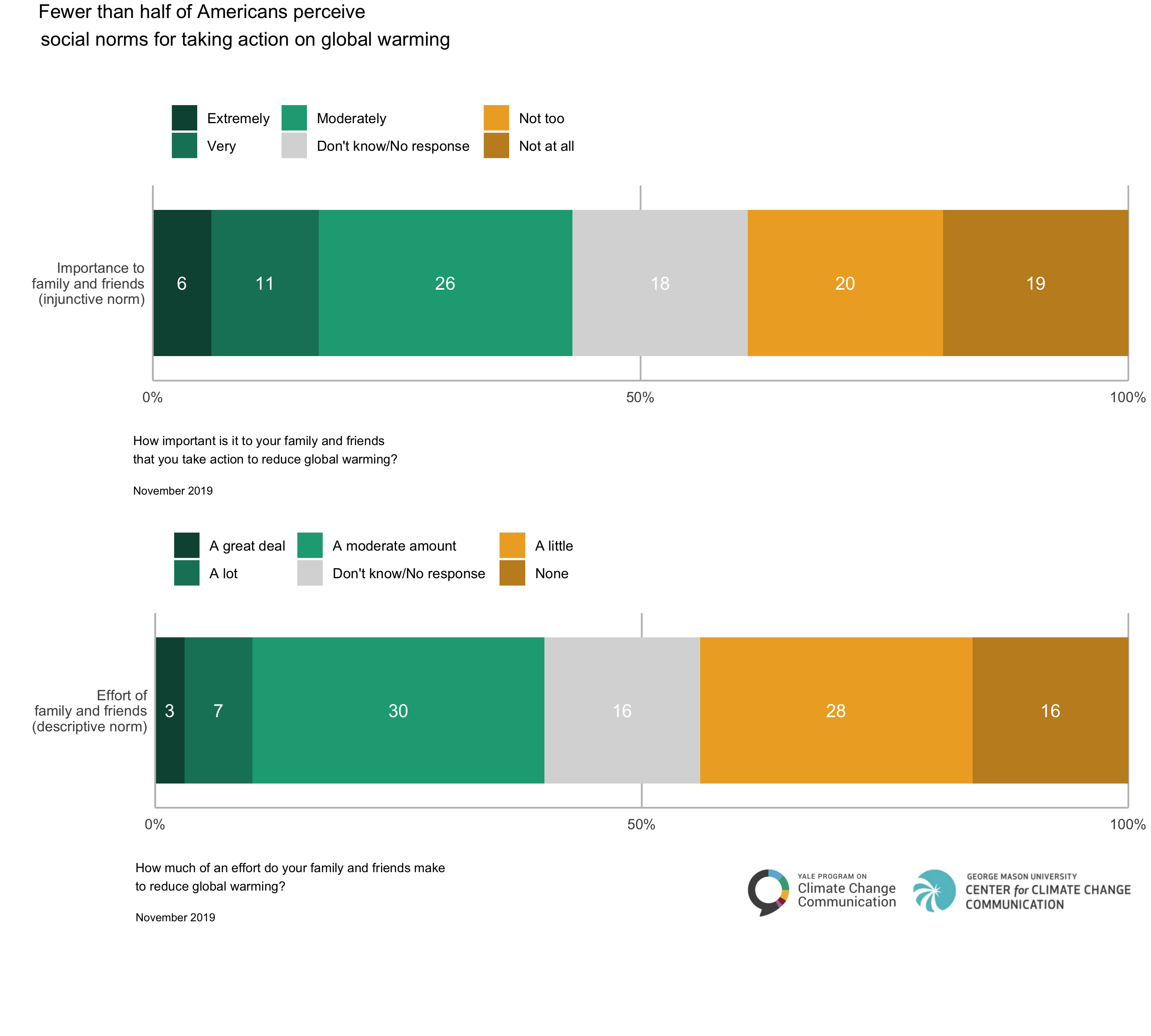Report · Dec 17, 2019
Climate Change in the American Mind: November 2019
By Anthony Leiserowitz, Edward Maibach, Seth Rosenthal, John Kotcher, Parrish Bergquist, Matthew Ballew, Matthew Goldberg and Abel Gustafson
Filed under: Beliefs & Attitudes
5. Personal and Social Engagement with Global Warming
5.1 Most Americans “rarely” or “never” discuss global warming with family and friends.
About six in ten Americans (59%) say they “rarely” or “never” discuss global warming with family and friends, a decrease of 14 percentage points over the past five years (since October 2014). About four in ten (41%) say they discuss global warming “occasionally” or “often,” a 14-point increase over the past five years.
5.2 More than half of Americans hear about global warming in the media at least once a month; fewer hear people they know talking about it at least once a month.
More than half of Americans (56%) say they hear about global warming in the media once a month or more frequently, an increase of 16 percentage points since we first asked the question in March 2015. One in four Americans (25%) say they hear about it in the media only several times or once a year, and 6% say they never hear about global warming in the media.
Only about one in four Americans (24%) say they hear people they know talking about global warming once a month or more frequently. In contrast, 39% say they hear people they know talking about it only several times or once a year, and about one in four (25%) say they never hear people they know talk about global warming.
More than four in ten Americans (44%) say they have seen “much” or “somewhat” more media coverage of global warming over the past year (see Report PDF, Data Table, p. 57), whereas only 13% say they have seen “much” or “somewhat” less media coverage about it. About four in ten (42%) say they have seen about the same amount of media coverage of global warming in the past year.
5.3 The issue of global warming is personally important to two in three Americans.
Two in three Americans (67%) say the issue of global warming is either “extremely” (18%), “very” (24%), or “somewhat” (26%) important to them personally. One in three (33%) say global warming is either “not too” (18%) or “not at all” (16%) personally important.
5.4 Fewer than half of Americans perceive social norms for taking action on global warming.
Social science research has shown that two types of social norms can have a powerful influence on people’s behavior: injunctive norms – the belief that friends and family expect you to behave in a given way; and descriptive norms – the belief that friends and family are themselves behaving in that way.Ballew, M. T., Goldberg, M. H., Rosenthal, S. A., Cutler, M. J., & Leiserowitz, A. (2019). Climate change activism among Latino and White Americans. Frontiers in Communication, 3(58), 1-15. Cialdini, R. B. (2003). Crafting normative messages to protect the environment. Current Directions in Psychological Science, 12(4), 105-109. Doherty, K. L., & Webler, T. N. (2016). Social norms and efficacy beliefs drive the Alarmed segment’s public-sphere climate actions. Nature Climate Change, 6, 879-884. Schultz, P. W., Nolan, J. M., Cialdini, R. B., Goldstein, N. J., & Griskevicius, V. (2007). The constructive, destructive, and reconstructive power of social norms. Psychological Science, 18(5), 429-434.
Fewer than half of Americans (43%) perceive an injunctive norm, saying it is either “extremely” (6%), “very” (11%), or “moderately” important (26%) to their family and friends that they take action to reduce global warming. Four in ten Americans (40%) perceive a descriptive norm, saying their family and friends make either “a great deal of effort” (3%), “a lot of effort” (7%), or “a moderate amount of effort” (30%) to reduce global warming.



